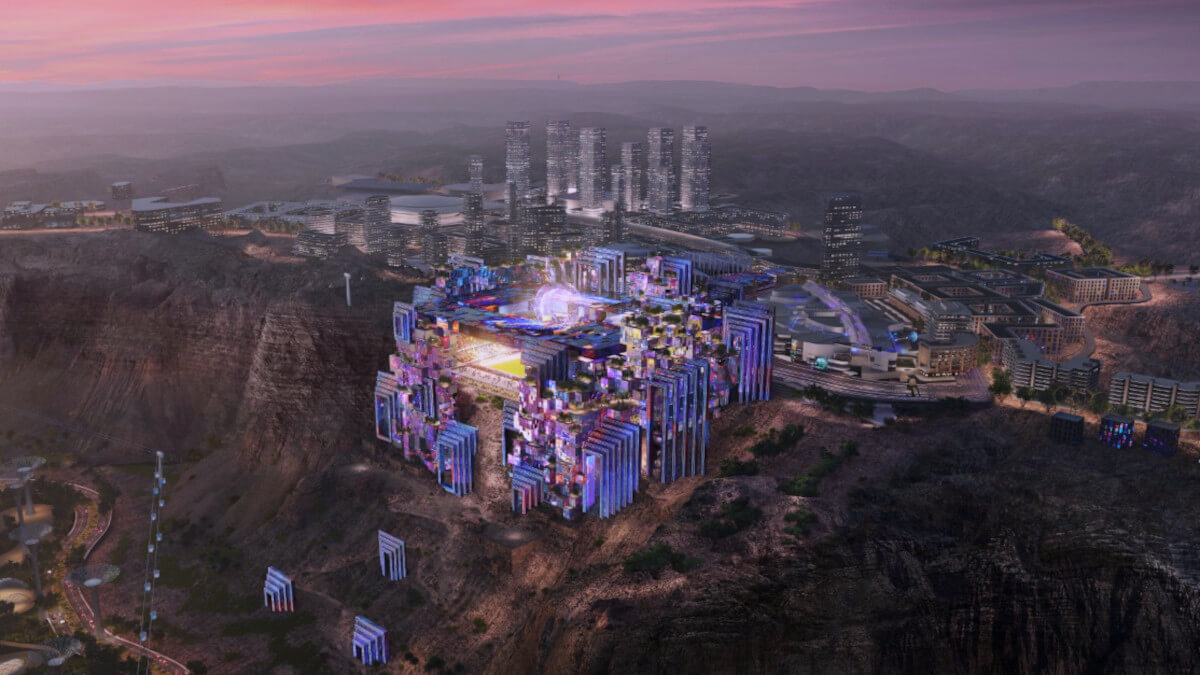
The 2034 World Cup to be held in Saudi Arabia, as announced by FIFA president Gianni Infantino on Wednesday 11 December, will take place in 15 stadiums (one more than FIFA requires) spread over five venues: Riyadh, Jeddah, Al Khobar, Abha and Neom, with Riyadh being the most populated with 15 million inhabitants, and Neom, the modern city on the west coast.
Saudi Arabia wants to hold the biggest and most relevant World Cup in history, and to this end they have presented the 15 mega-stadiums with which they intend to impress the world with facilities in unique locations that break with the norm. Mixing luxury and futurism with Saudi traditions, the 15 stadiums that will host the World Cup will have the best facilities and access in the world.
Saudi Arabia has been investing in sport in recent years. The Arab country has become a popular destination for prominent footballers from European leagues in recent years, including Cristiano Ronaldo, Karim Benzema, and Neymar Jr.
For the first time in the 100-year history of the World Cup, 48 teams from six continents will participate in what promises to be ‘the best World Cup ever’. Because of this, Saudi Arabia has unveiled the 15 fields that will be part of the world’s biggest sporting event.
All located less than 2 hours by plane from each other, the World Cup stadiums are located: 8 in the capital Riyadh, 4 in Jeddah, 1 in Neom, 1 in Al Khobar and 1 in Abha. In this article we will focus on the stadiums in the capital and how important they will be in the tournament.
The first and most important is the King Salman International Stadium in Riyadh. With a capacity of 92,760 spectators, it will host the opening match and the final. Inside the stadium, there will be more than 100 square metres of video scoreboards.
It will be in the heart of King Abdulaziz Park. The stadium will be at the forefront of sustainability with green roofs that blend in seamlessly with the surroundings. The stadium is the only one of the 15 stadiums that has the minimum of 80,000 seats required by FIFA to host the final.
The Prince Mohammed bin Salman Stadium will host the match for third place. It is a modern venue to be built south-west of Riyadh. Its unique three-sided design will be integrated into a cliff and will be the entertainment centre of the Qiddiya project. Construction is expected to begin in 2026 and finish in 2029. The total planned capacity of 46,979.
King Fahad Sports City Stadium will host the semi-final matches. The venue currently hosts home matches for the Saudi Arabian national team and is being renovated for the 2027 Asian Football Championship (AFC).
Once completed, the capacity will be increased to 70,200, exceeding the minimum 60,000 seats required for the semi-finals. In addition, the athletics track will be removed, and special service facilities will be upgraded.
The King Saud University Stadium will host matches up to the round of 16. The venue currently hosts Al-Nassr’s home matches and will be used during the 2027 AFC.
Then, in 2029, a renovation will begin to temporarily increase the capacity and improve the services offered. The total capacity will be 46,319, exceeding the minimum 40,000 seats required to host round of 16 matches.
The New Murabba Stadium will host group stage matches. The modern stadium to be built in the north-west of Riyadh will have a roof with a design inspired by the bark of the acacia tree, which is typical of Riyadh, and will be adapted to the residential environment. Construction is expected to begin in 2025 and be completed in 2029. The total projected capacity is 46,010 spectators.
The Prince Faisal bin Fahad Sports City Stadium will host matches up to the round of 16. The venue is under construction as part of a sports and leisure plan and will be used for the 2027 AFC. The estimated total capacity of 46,865.
The ROSHN Stadium will host matches up to the round of 16. This modern stadium to be erected in south-west Riyadh will have a glass structure designed to fit in with the spaces in the residential area. Construction is expected to start in 2028 and finish in 2032. The total capacity will be 46,000.
As with the New Murabba Stadium, the large roof structure could create some drawbacks regarding the flexibility to place removable decorative solutions in the surrounding area.
Finally, the Riyadh South Stadium will host matches until the round of 16. This venue will be built in the south-west of Riyadh as part of the Green Riyadh project and will be linked to the Wadi Namar Park. Construction is planned to start in 2029 and finish in 2032. The expected total capacity of 47,060 spectators.
Para líderes mediterráneos y atlánticos, quiere ser el puente de comunicación, información y entendimiento entre culturas.
Dirección: Calle Claudio Coello, 10. 28001 Madrid. España
Teléfono: +34 91 219 63 84
Email: [email protected]

